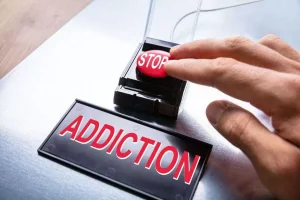
This does not mean endorsing slips, but recognizing that if they occur, something needs to be done immediately. Both slips and even full-blown relapses are often part of the recovery process. A person with alcohol use disorder (AUD) may feel like drinking when out with friends at their favorite hangout, for example. As an example, a smoker may feel the urge to smoke when driving long distances or while drinking coffee when they normally enjoy smoking.
Is a Relapse Dangerous?
Rather than labeling oneself as a failure, weak, or a loser, recognizing the effort and progress made before the lapse can provide a more balanced perspective. For Jim and Taylor, this might involve acknowledging the months of sobriety and healthier lifestyle choices and understanding that a single incident does not erase that progress. A good treatment program should explain the difference between a lapse and relapse.

Breaking Free from Self-Imploding Behaviors: Signs, Causes, and Solutions That Work
Feelings of guilt, shame, and self-blame may lead people to question their ability to overcome addiction and exacerbate underlying issues of low self-esteem. Having a solid support system of friends and family who are positive influences can help you to remain steady within your recovery. Access to aftercare support and programs can also help you to avoid and recover from the AVE. Thus, despite various definitional issues in the research, the above definitions will guide this article and discussing the issue of relapse. How one defines relapse may be an important influence on determining what happens when one suffers a lapse or slip. For instance, one interesting manifestation of a lapse is something termed the abstinence violation effect.

What Is The Difference Between A Lapse And Relapse?
Relapse is viewed by psychologists as more of a process than a singular event. A relapse is the result of a series of events that occur over time, according to psychologist and researcher Alan Marlatt, Ph.D. You might imagine a relapse as a single event that occurs during a moment of weakness. Nevertheless, 40 to 60% of people who once were addicted to a substance and achieved sobriety relapse at some point, based on alcoholism estimates from the National Institute on Drug Abuse (NIDA).
Single Forever: Why More People Choose Solo Living & Thrive (Study Shows)
- The negative emotional responses you are experiencing are related to stress, high-risk situations, or inborn anxieties.
- Acknowledging your triggers and developing the appropriate coping skills should be a part of a solid relapse prevention program.
- Celebrating victories is a good thing, but it’s important to find constructive ways to appreciate your sobriety.
- A person who has abused a substance for a long time is likely to have a higher tolerance for its effects.
- This protects their sobriety and enhances their ability to protect themselves from future threats of relapse.
Triggers include cravings, problematic thought patterns, and external cues or situations, all of which https://ecosoberhouse.com/ can contribute to increased self-efficacy (a sense of personal confidence, identity, and control) when properly managed. AVE also involves cognitive dissonance, a distressing experience people go through when their internal thoughts, beliefs, actions, or identities are put in conflict with one another. In other words, AVE describes the thoughts, feelings, and actions a person goes through after they make a mistake and have a drink or abuse a substance, despite trying to quit. Overcoming the abstinence violation effect starts with being mindful of it and follows with being kinder to ourselves. If we accept the obvious fact that we are human beings and sometimes make mistakes, it is much easier to recover from setbacks. Rather than questioning our self-worth after a mistake is made, we will be able to simply acknowledge it and move on from there.
Understand The Relapse Process
- Our treatment options include detox, inpatient treatment, outpatient treatment, medication-assisted treatment options, and more.
- We are dedicated to transforming the despair of addiction into a purposeful life of confidence, self-respect and happiness.
- Recognize that setbacks are common during recovery and do not equate to failure.
- A physical relapse occurs when you take your first drug or drink after achieving sobriety.
- With the right help, preparation, and support, you and your loved ones can still continue to build a long-lasting recovery from substance abuse.
Additionally, we will guide you to outpatient and inpatient treatment options. Knowing that can be disheartening, but it can also cause you to relapse out of the belief that relapse is inevitable. It’s important to note that a relapse doesn’t mean your recovery has failed. Still, you should also realize that relapse isn’t guaranteed, especially if you stay vigilant in managing your continued recovery. When someone abuses a substance for a long time, they will have a higher tolerance for its effects. It is for this reason that someone’s tolerance declines following a period of abstinence and that they may overdose if they start using again at the same level as before.
In conclusion, the abstinence violation effect is a psychological effect that impacts those in recovery, as well as those who are focused on making more positive behavioral choices in their lives. Self-efficacy is defined as the degree to which an individual feels confident and capable of performing certain behaviour in a specific situational context5. Upon breaking the self-imposed rule, individuals often experience negative emotions such as guilt, shame, disappointment, and a sense of failure. Cognitive processes may include self-blame, rumination, and heightened self-awareness. These emotional and cognitive reactions intensify the Abstinence Violation Effect, which may lead to a further loss of the abstinence violation effect refers to control and increased vulnerability to subsequent relapses or deviations from the established rule. While a person may physically abstain from using drugs or alcohol, their thoughts and emotions may have already returned to substance abuse.

AVE in the Context of the Relapse Process
The AVE describes the negative emotional response that often accompanies a failure to maintain abstinence from drugs or alcohol. A period of successful recovery and abstinence is something to be celebrated. However, it can sometimes lead to the thought that you have earned a drink or a night of using drugs. It sounds counterintuitive, and it is, but it is a common thought that many people have to recognize to avoid relapse. Celebrating victories is a good thing, but it’s important to find constructive ways to appreciate your sobriety.
Sign up for text support
This protects their sobriety and enhances their ability to protect themselves from future threats of relapse. The abstinence violation effect occurs when an individual has a lapse in their recovery. Instead of learning and growing from their mistake, an individual may believe that they are unable to complete a successful recovery and feel shame and guilt. Similar to the reward thought, you may have another common thought after a period of sobriety. When you’ve experienced some success in your recovery, you may think that you can return to drug or alcohol use and control it. You may think that this time will be different, but if your drinking and drug use has gotten out of control in the past, it’s unlikely to be different this time.

